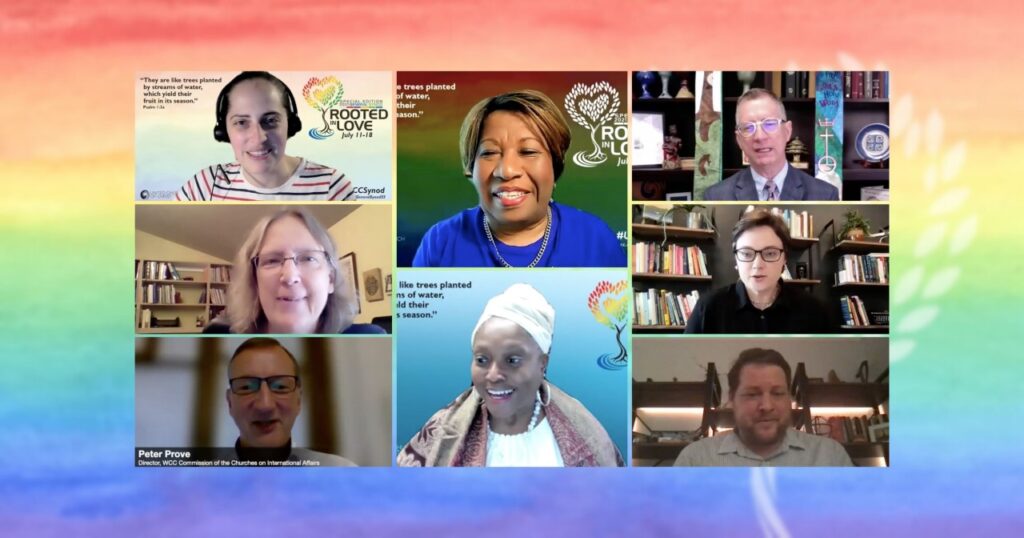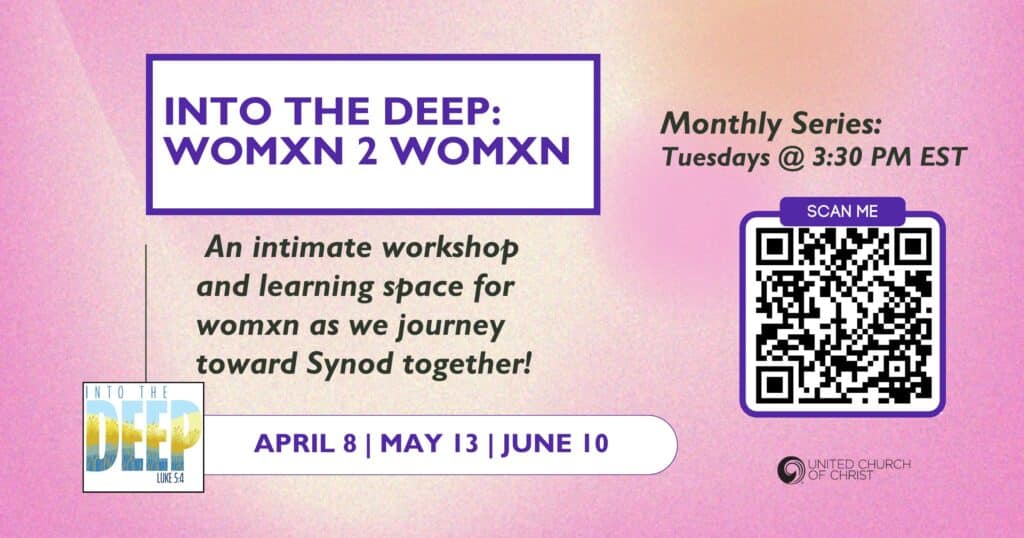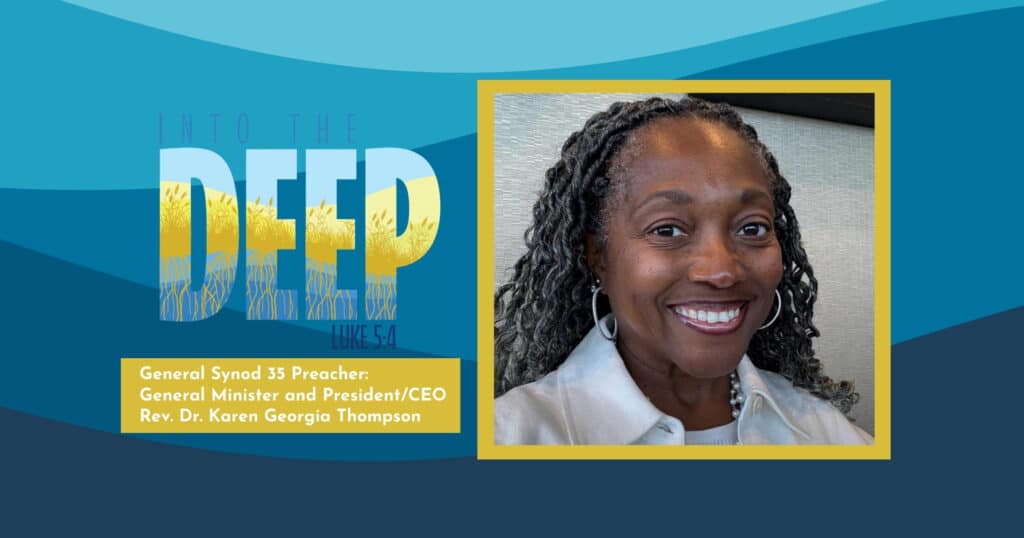Church leaders discuss importance of international connections
The importance of United Church of Christ connections within the wider church and with the United Nations were underscored Wednesday evening during virtual session with UCC leaders, World Council of Churches representatives, and members of local UCC churches.
The July 14 session, “UCC at the United Nations: Growing New Connections to Create a Just World,” provided tools for local congregations to collaborate with the United Nations and advocate for U.N. programs globally and in their own communities.
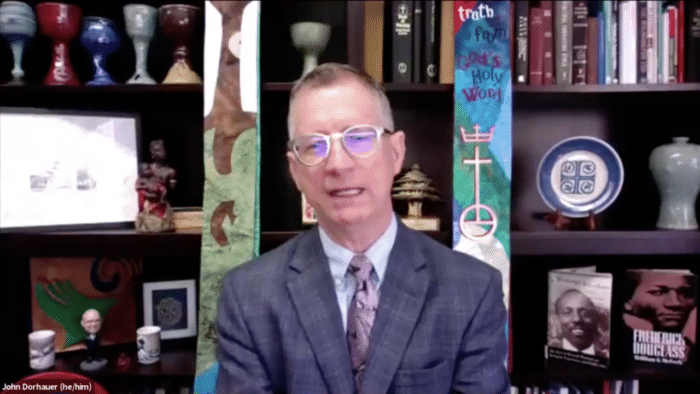
“We don’t have the capacity to [create] what we see as a just world for all by ourselves,” said the Rev. John Dorhauer, UCC general minister and president. “So we forge meaningful partnerships with those who enlarge our capacity to do so as long as we enlarge theirs.”
Dorhauer said that two U.N. initiatives are currently “begging for the encouragement of the UCC.” These are the U.N. Sustainable Development Goals and the International Decade of People of African Descent, which this virtual General Synod endorsed by an overwhelming vote July 11.
“The U.N. aligns perfectly with the mission and intent of the United Church of Christ, centering in love and justice,” Dorhauer said.
‘Case for multinationalism’
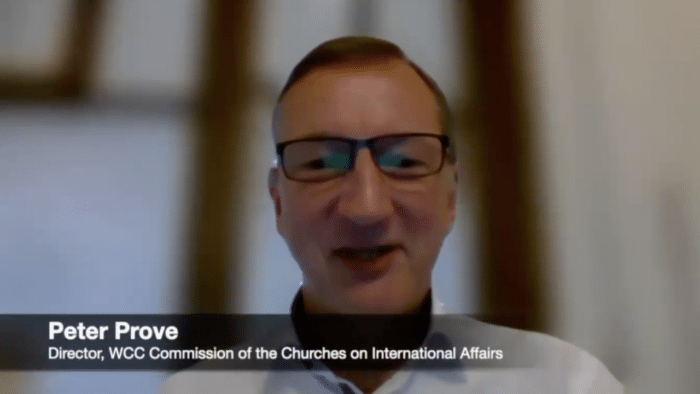
Peter Prove, who directs the WCC Commission of the Churches on International Affairs, spoke about the history of his agency, the importance of remaining engaged with global agencies, and the effectiveness of faith communities united for global advocacy. He said the COVID-19 pandemic is the latest illustration of the value of working together, and the consequences for going it alone. “It is for us as churches, a global community joined in faith, to continue make the case for multilateralism at a time when it has become unfashionable.”
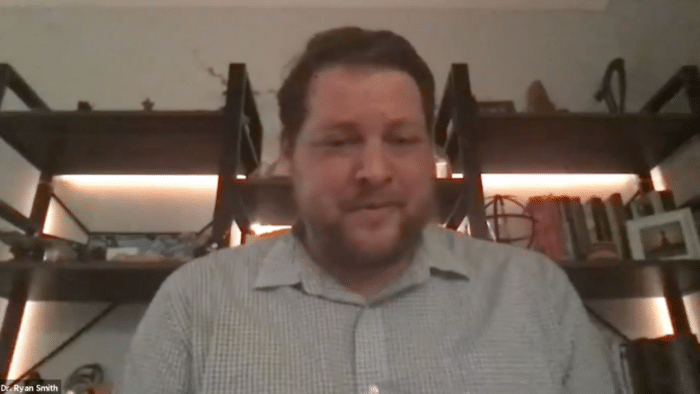
Ryan Smith, WCC program executive for the Ecumenical Office to the United Nations, agreed. The WCC, he said, is the “United Nations” of the church, bringing multiple faith communities together.
“The voice of members and the global ecumenical community change the way governments see the needs of their people,” Smith said. “The role of faith within government systems is not only appropriate but necessary.
“That’s a way for the UCC to exercise its voice to push the WCC to speak in places the UCC has not and would not before.”
‘Kind of change we seek’
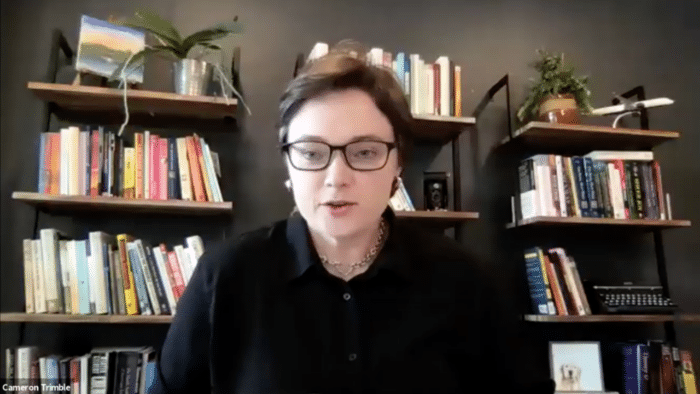
Collaboration with the U.N, said the Rev. Cameron Trimble, “grants the UCC a global network imbued with just enough trust to work for justice, equity, and peace at a powerful scale.” As CEO of Convergence, a UCC-affiliated consultancy, Trimble sees a just world as possible, with collaboration, using “these globally scaled frameworks in order to create the kind of change we seek.”
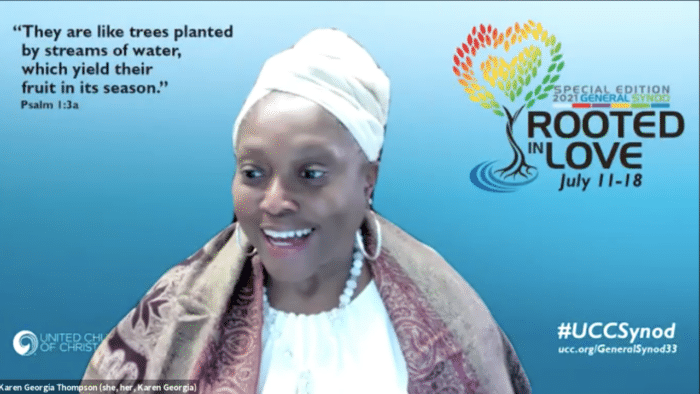
UCC Associate General Minister Karen Georgia Thompson challenged the UCC to send a delegation to next spring’s U.N. Commission on the Status of Women conference. She also encouraged the church in all its settings to consider the power of their connections. “We need to be attentive and we need to amplify that as we think about what it means to create a just world for all.”
The United Nations, Thompson said, “is an important space. The church should be in this global space.”
Read a reflection on the discussion from the Rev. Cameron Trimble here.
See the World Council of Churches article on the UCC discussion here.
Tim Kershner, a longtime General Synod Newsroom volunteer, lives in Campton, N.H., in the New Hampshire Conference.
Related News
2025 Climate Hope Art Contest award winners plant seeds of hope
The celebration of the 2025 Climate Hope Art Contest for children and youth of the United...
Read More‘Not your typical webinar’: Womxn 2 Womxn series aims to foster community
As the church works towards gathering this summer at General Synod 35 in Kansas City,...
Read MoreThompson to bring a ‘prophetic and pastoral’ message to Synod: ‘We are not all the same, but still one body’
On Sunday, July 13, the Rev. Dr. Karen Georgia Thompson will take the stage at the 35th...
Read More
